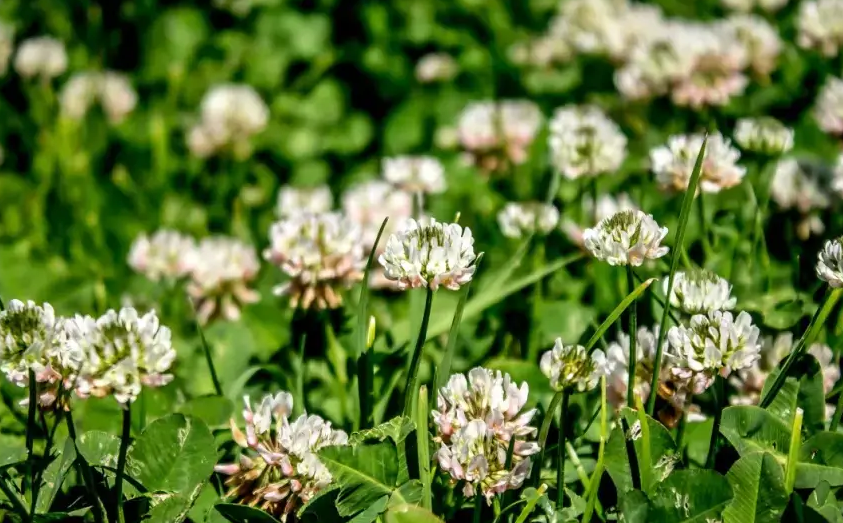If you’ve been on a quest for a low-maintenance, eco-friendly lawn alternative, you’ve probably come across White Dutch Clover seed. This little plant is often seen as a weed in traditional lawns, but more and more homeowners and landscapers are embracing it for its numerous benefits. From improving soil health to its ability to stay green with less water, White Dutch Clover is making a comeback as a natural and sustainable ground cover.
What Is White Dutch Clover?
White Dutch Clover is a low-growing perennial legume that belongs to the pea family. It’s known for its trifoliate leaves and delicate white flowers that bloom in the spring and summer. Traditionally, clover was a common component of lawn mixtures because of its ability to improve soil quality and remain green through the seasons. However, with the rise of modern lawn care practices and herbicide use, clover fell out of favor—until now.
Why Plant White Dutch Clover in Your Lawn?
White Dutch Clover is a fantastic alternative to the traditional all-grass lawn for several key reasons:
1. Natural Nitrogen Fixer
One of the standout features of clover is its ability to fix nitrogen in the soil. This means it can take nitrogen from the air and convert it into a form that benefits the plants around it. By planting White Dutch Clover, you’re naturally fertilizing your lawn without the need for chemical fertilizers. Clover will keep your grass greener and healthier without constant feeding.
2. Low Maintenance
If you’re looking to reduce the amount of time you spend on lawn care, White Dutch Clover is a great choice. It requires less mowing than grass, usually staying around 3-6 inches tall, and it’s more drought-resistant, needing less water to stay lush and green. Plus, because of its dense growth, it crowds out weeds, reducing the need for herbicides.
3. Tolerates Poor Soil
Do you have patches of your yard where grass just refuses to grow? White Dutch Clover thrives in poor soil conditions, making it an excellent solution for areas where grass struggles. It’s incredibly resilient and can handle heavy foot traffic, so it’s ideal for backyards, pathways, and play areas.
4. Pollinator-Friendly
Those delicate white flowers that bloom in the warmer months are a huge hit with bees and other pollinators. If you’re looking to create a more pollinator-friendly yard, White Dutch Clover is a simple way to attract beneficial insects while maintaining a beautiful green lawn.
5. Stays Green All Summer
Unlike some grass types that can brown during drought or high heat, White Dutch Clover stays vibrant and green even in less-than-ideal conditions. It’s particularly well-suited for regions that experience dry spells during the summer.
How to Incorporate White Dutch Clover into Your Lawn
If you’re ready to give clover a try, there are two ways to introduce it to your yard:
- Mixed Clover Lawn: Combine White Dutch Clover seed with your grass seed for a blended lawn that provides the benefits of both. The clover will help improve the health of your grass, creating a more sustainable and low-maintenance lawn.
- Clover-Only Lawn: If you’re ready to go all-in, you can replace your grass entirely with White Dutch Clover. This is an excellent option for those seeking an eco-friendly alternative that’s easier to care for, uses less water, and doesn’t require chemical fertilizers.
Conclusion: A Sustainable, Attractive Choice
White Dutch Clover is more than just a weed in the lawn—it’s a versatile, hardy, and beneficial plant that can enhance your yard in numerous ways. Whether you want a greener lawn with less upkeep, improved soil health, or an inviting space for pollinators, clover might be the perfect choice. Plus, it’s cost-effective and environmentally friendly. So why not trade the endless fertilizing, watering, and mowing cycle for a lush, easy-care clover lawn? Your yard—and the environment—will thank you.

